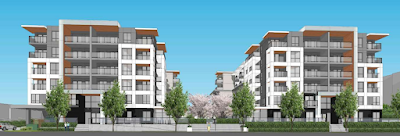It was a hot day yesterday, so I decided to ride my bike down to McBurney Plaza and grabbed a cold brew coffee and a cookie from Oldhand Coffee. It is one of several excellent independent coffee shops in Downtown Langley City, along with Coastal Coffee, Cozy Bean Bakery, Cup O' Cafe, Red Velvet Cafe, and Twins Coffee.
Anyway, I was talking to the barista, and I think I mentioned that Langley City used to be called Langley Prairie. She thought it was interesting and said that people always ask her about the area's history.
I mentioned that McBurney Plaza exists because, in 1995, the historic Oddfellows Hall caught on fire twice. The plaza is where the hall used to be. I then pointed out some of the other century-old buildings in our downtown.
Our community has so much history, but I fear that it will be lost if we don't share that history.
Langley City's Arts, Recreation, Culture, and Heritage Committee has been busy bringing that history back to life along with community members.
You'll notice that there are many things named Douglas in Langley City. They are named after James Douglas, the first Governor of the Colony of British Columbia. I've posted about his connection to the historic Black community in BC. He was of mixed descent.

|
| Unveiling of plaques about James Douglas and Black History in Douglas Park. Select the image to enlarge. |
A few weeks ago, some Arts, Recreation, Culture, and Heritage Committee members officially unveiled new information plaques about James Douglas in Douglas Park. Be on the lookout for them, the next time you are at the park.
You'll notice signs about Langley City's railway history along Michaud Crescent and Grade Crescent that we rolled out earlier.

|
| Vancouver, Victoria and Eastern Railway Sign at the south entrance of Sendall Gardens. |
There is much more history to tell, and I'm excited that we are starting to bring that history to life.














